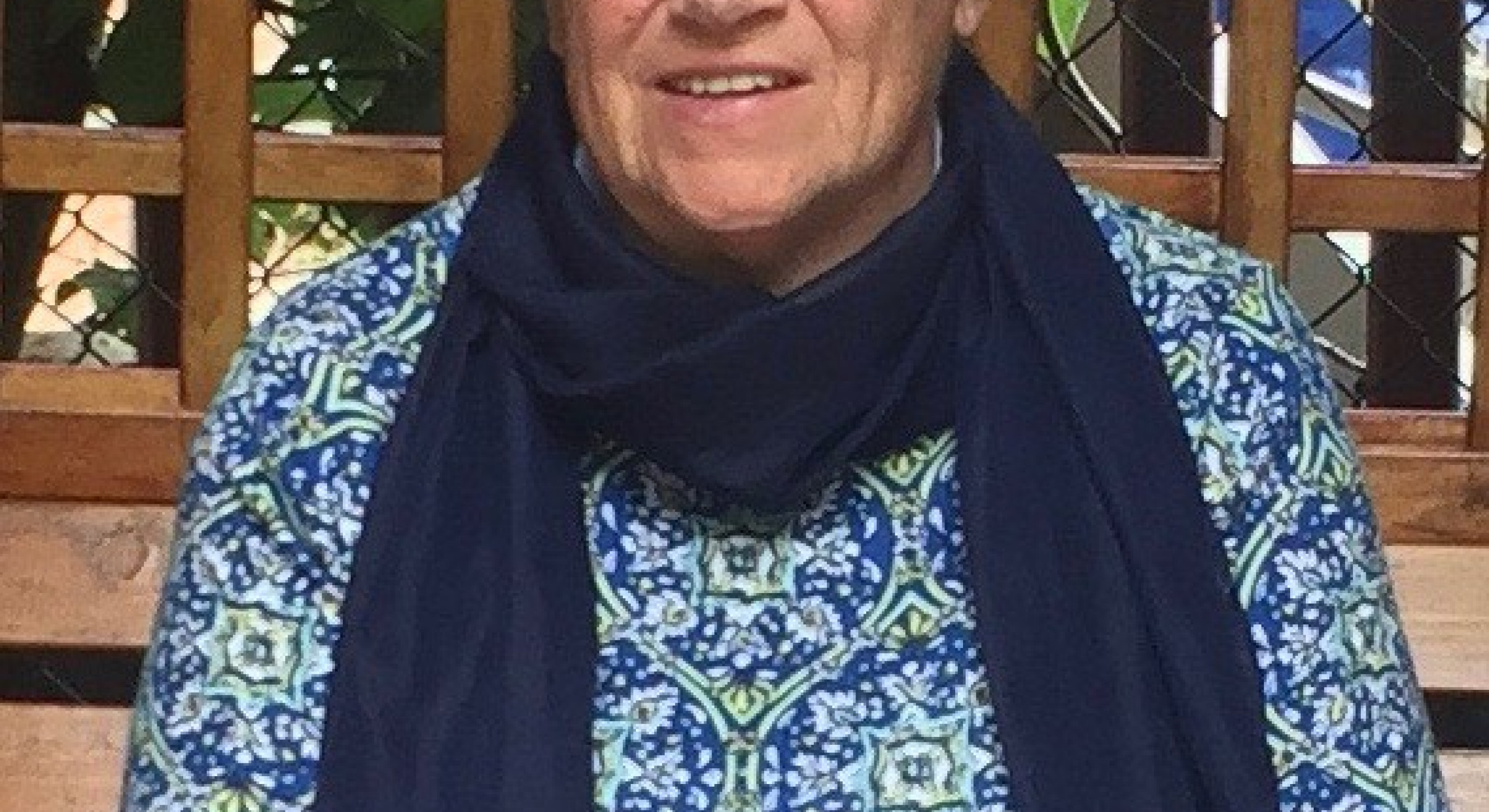Margaret Keane died age 73 in 2018. Her death was a shock to her husband Bernie, her six children and 14 grandchildren. Originally from Meath, Margaret was a dedicated GAA fan and volunteer, supporting local Coventry club Roger Casements and received a GAA Presidential Award from President Higgins. She is greatly missed by her family and her community.
 In May, the Church of England’s diocesan consistory court Judge Stephen Eyre QC rejected the family’s proposal of an untranslated Irish inscription on Margaret’s memorial stone, reading In
ár gcroíthe go deo (in our hearts forever).
In May, the Church of England’s diocesan consistory court Judge Stephen Eyre QC rejected the family’s proposal of an untranslated Irish inscription on Margaret’s memorial stone, reading In
ár gcroíthe go deo (in our hearts forever).
The family does not want a translation as they feel this will crowd the stone and do not believe it should be mandated in this way. The inscription is of personal importance to the family and they had already agreed to amendments to a Celtic cross with GAA emblem that will adorn the gravestone.
In his comments on the case, Eyre stated that the “given the passions and feelings connected with the use of Irish Gaelic there is a sad risk that the phrase would be regarded as some form of slogan or that its inclusion without translation would of itself be seen as a political statement.” He also denied the family permission to appeal his judgement.
 We spoke to Margaret’s daughters Caroline and Bez and heard about how their family are affected and disappointed by Judge Eyre’s comments and upset that the process of completing Margaret’s gravestone has been delayed now for two years.
We spoke to Margaret’s daughters Caroline and Bez and heard about how their family are affected and disappointed by Judge Eyre’s comments and upset that the process of completing Margaret’s gravestone has been delayed now for two years.
Caroline told us: “This has been a very challenging time for the family and we know we still have a long way to go. We recognise the ruling regarding Mum’s headstone has resonated with many of the Irish community and as a result we feel we have a moral obligation to pursue this appeal.
“The ruling transcends Coventry’s borders and we hope to continue to uphold the importance of cultural identity, including language, for the Irish diaspora. The family remains grateful for the support from the many Irish organisations and individuals from which we receive much strength. Margaret Keane is deeply missed and remains In ár gcroíthe go deo.”
In July, the Irish Post published a letter from Irish in Britain expressing our concern about the judgement. Other Irish groups have condemned the decision. We believe that words proposed for the memorial stone could not be more fitting and appropriate as a tribute to a cherished member of Coventry’s Irish community.
It is disrespectful to the Irish community in Britain to view a phrase in Irish as a “political statement” with no evidence to support such an assumption.
The chosen phrase has a profound emotional meaning for the Keane family and is a deeply personal endearment for a much–loved family member.
For so many in the diaspora, the Irish language is an integral part of their identity and heritage. Irish classes are offered by a variety of non–political institutions and groups throughout Britain. The Good Friday Agreement, to which the UK and Irish governments are co–guarantors, recognised “the importance of respect, understanding and tolerance in relation to linguistic diversity”.
Judge Eyre’s judgement displayed a lack of awareness of Coventry’s Irish community and acknowledgement of the diversity of the area. Tens of thousands moved to the city over the course of the 20th century and it remains one of the most Irish cities in Britain today.
Welsh precedent
In a case about a Welsh phrase on a London gravestone two years ago, the Judge Morag Ellis QC accepted that those who wanted a translation could simply look it up online. There is also an untranslated Welsh inscription in St Giles’ churchyard where Margaret has been laid to rest. We hope that commonsense will prevail in this case with such precedents.
Church figures have distanced themselves from decision, but the family have been forced to take their case to the church’s highest court of appeal, the Arches Court. Due to the decision in mid–August, the family have now won the right to appeal to this court which is headed by Morag Ellis.
Furthermore, as pointed out by Caoilfhionn Gallagher QC, the famous comedian Spike Milligan has an untranslated Irish inscription on his grave stone in Sussex.
Gallagher, fellow barrister Mary–Rachel McCabe and solicitor Caroline Brogan make up the Keane family’s legal team and are working free of charge on the case. Over £3,500 has already been pledged to a fund to support youth members of the club in Mrs Keane’s memory. This initiative marks the abiding and positive public spirit that characterises the Irish in Britain – a spirit of care and community that is needed now more than ever.
We wish the Keane family all the best in their appeal and hope that the initial decision is soon overturned.
